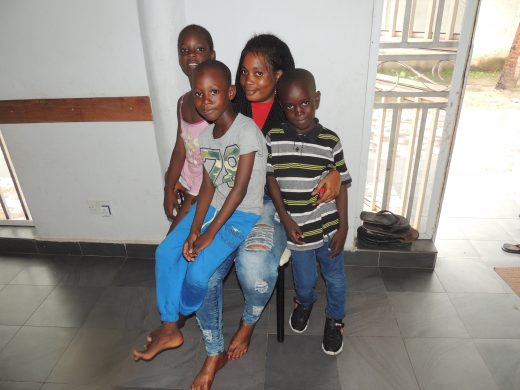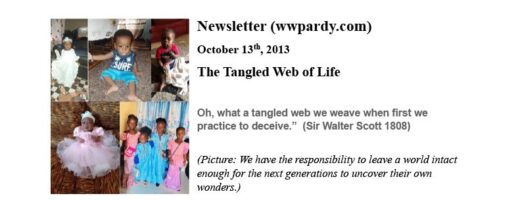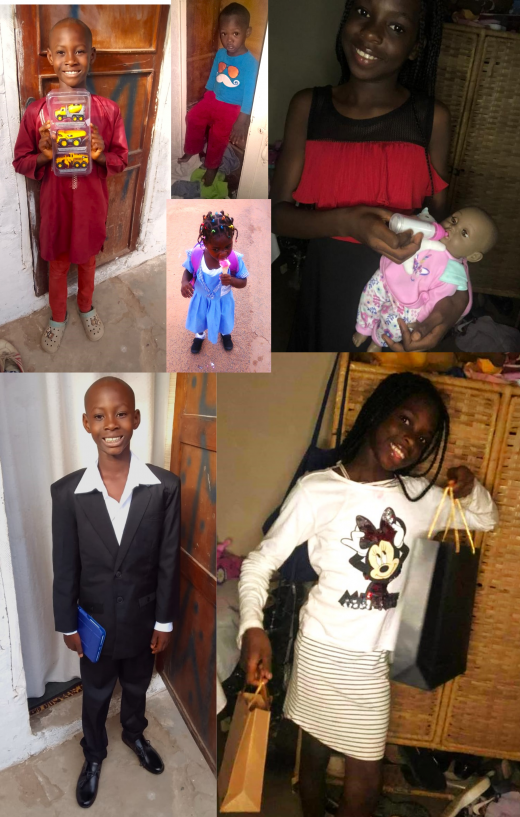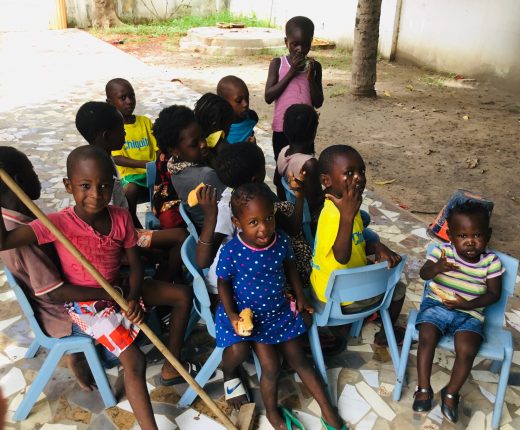
(My friend Oumie with three special children – Nyima, Ebrima and Musa)
It has been my good fortune these past few months to be able to explore the beaches of The Gambia and listen to the music of the ocean while contemplating life and living and its challenges. It is amazing how the beach changes week by week-like an artist’s canvas brushed by the sea and the wind.
I have been to Bakau beach on many occasions since arriving in The Gambia to buy fish. Today I decided to do some exploring there and found a somewhat idyllic setting just beyond sight – it was so close, but for me unseen. It is amazing how one can live in this world and miss so much that is around us. Much of it is so near it is impossible to consider that we hadn’t seen it.
Exploring and seeing the world, even places nearby, is part of the intrigue and discovery in the midst of life’s mystery and unknown. Most fall into the trap of believing that “they know”.
As one gets older one discovers how little they do know. Reality suggests that knowing is less important than discovering; as it is through exploration that minds are kept aware and instincts keen.
Humans are born with an innate need to search, to seek and to discover. Who we are, how we fit and into what we must fit are life’s most compelling questions. These ultimately have no real answers; at least not ones that are easily evident.
These questions often become muddled through the influence from others “who know”: parents, teachers, friends, religious leaders and even governments. They all help define for us what it is that one should be exposed and to know.
Life’s own plan is almost always influenced, often superseded, by the plans of “those who know”.
People are shaped, molded, directed, even challenged to be a certain way. Most conform without really questioning themselves about what it really is they must learn and experience to be who they really are and attain what life would have them achieve. They live life as it has been defined, because it is much simpler and secure.
Why explore, imagine and discover, much better to just fit into what exists?
But, life has an inbuilt mechanism dictated by time and the universal tides of nature which ensures its plan unfolds; usually not in a way that most even imagine. It is called generational change. It happens as surely as the ocean tides ebb and flow every day.
With each generation come new thoughts, ideas, and actions, as they are shaped by their life’s experiences. They too, after a time, believe that “they know”. Many will have explored and discovered for themselves things other than what they were taught or conditioned to believe.
Generational shifts are much similar to the ocean tidal shifts that change beach landscapes.
As the oceans’ tides roll in they deposit many things on the shoreline for all to see, some of it useful to nature, much that is unessential wastage.
The only thing differentiating the oceans’ tides from the tides of life is that nebulous concept called time; they take longer, but are as predictable, continuous and ever cleansing.
Life’s tides remove that which has become redundant and useless, while erasing the excesses imposed and layered on life by those older. Each receding tide provides a new generation occasions to make its own discoveries, mistakes and to search opportunities.
No mechanism has been found to change these tides or make them function differently. What we manage though, is to increase the amount of wastage that needs to be removed.
The world has been going through the process of generational change for the last few decades. There have been attempts to change life’s course, as the life time for many has been elongated.
As the generational tide moves from a creep to a surge there are frenetic movements to rectify the evident destruction and to make reparations. Unfortunately, these efforts are based upon “what is known”.
Forgotten or ignored are the realities and certainties of life. The ancient saying that “time and tide wait for no (hu)man” is still a truth.
At some point the inevitable must be accepted and the realization understood that in end what’s important is our humanness and nothing else.
Our humaneness relates to how we treat each other, how we treat all living creatures and how we treat the natural and living world that is shared by all.
Our humanness is tied to the spiritual world; a world that lies beyond time, place and understanding. It is the mystery that is, and has been, one of the most compelling searches of human history. Many suggest that it is the reason for our very existence.
Humans have explored the world, they have searched near space and are probing far into the universe. These searches have brought us many discoveries; some understandable and some not. They have also afforded for many magical tools with which to allow wider searches and innovations to ease life’s passage.
In the end human life comes back to where it began; the search for our genuine self. For, as certain as the tides come ashore, they will recede. All that has been accumulated in our lifetime will be left upon the landscape of life.
Our humanness(or lack of), the correlation of the way we have treated others, accepted nature’s gifts and reacted to the challenges that life imposed upon us, will shine through for all to see.
What won’t be as evident are the feelings and the memories of those with whom we touched and who touched us, as we wandered our way through the wending pathway of our life. These illuminate a much deeper portrait of our humanness.
Written by Bill Pardy
October 10th, 2011


